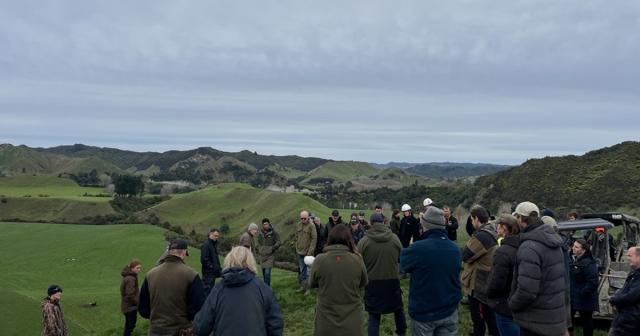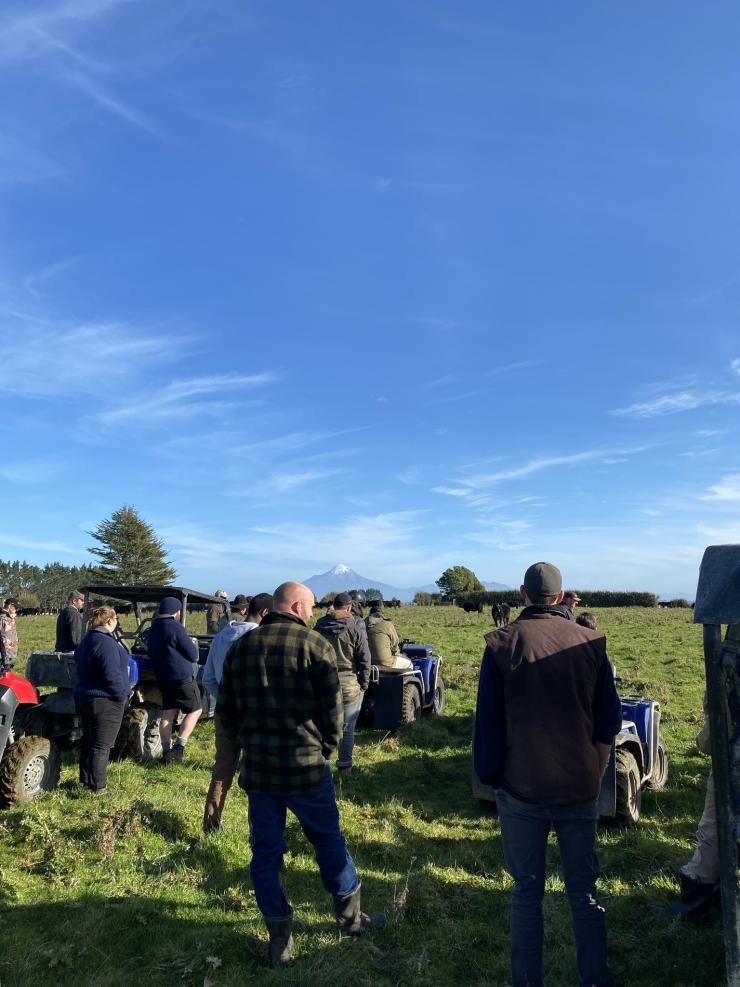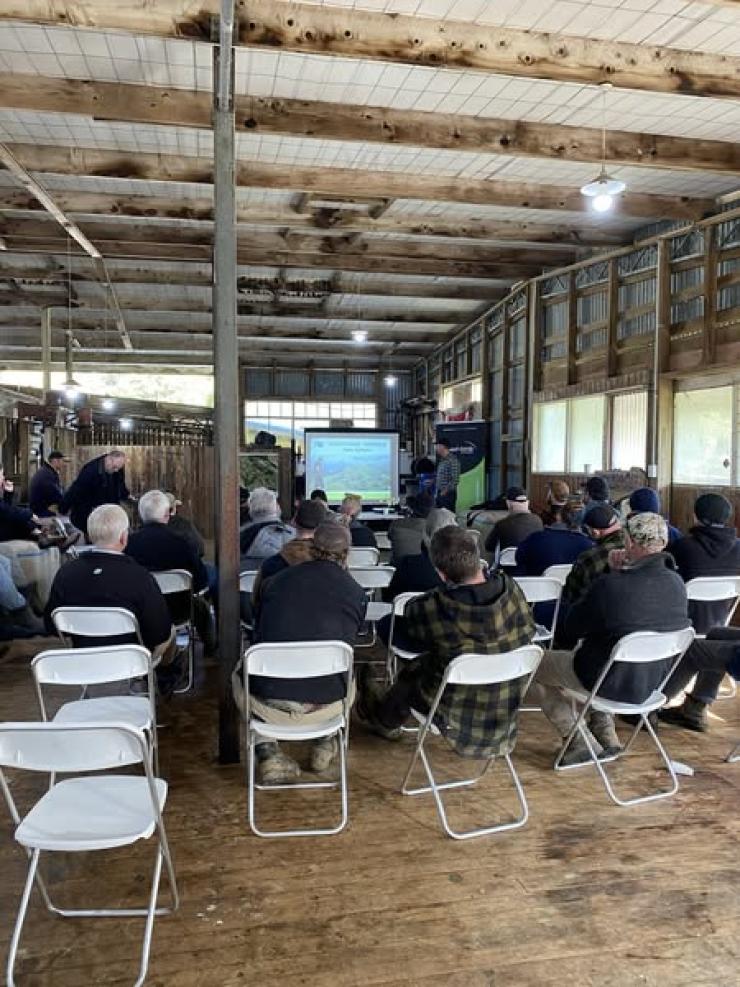Each year, Beef + Lamb New Zealand (B+LNZ) hosts three events across the Taranaki region to spotlight innovative farming practices and businesses as part of the B+LNZ Farming for Profit initiative. The final event for the past two years has been held at TET Stadium in Inglewood. Here's a summary of the 2025 series.

Dairy beef innovation at the Parrys’ Meremere Farm
The first event took place at Kurt and Katie Parry’s 85ha property in Meremere, where they finish 300 Charolais beef calves alongside mixed-aged breeding cows and stud bulls. Their dairy beef progeny come from their 50/50 sharemilking role in Hāwera.
“The Parry’s business fitted nicely with the Dairy Beef Progeny theme,” said Kate Good, B+LNZ’s local Extension Manager. “We fund a dairy beef progeny project that see 240 dairy beef animals bred from the two local dairy research farms in Taranaki. These resulting progenies are the best and brightest bulls that the beef industry can offer, helping us lower excess dairy calf numbers and breed profitable, efficient animals.”
Richard Redmayne of Natures Beef also spoke at the event. He finishes dairy beef heifers to slaughter weight by 15 months, supplying Michelin-starred restaurants in Hong Kong and Auckland, including Park Hyatt, where his Coastal Spring Lamb brand is already featured.
“Richard’s aim is to grow a brand that has significance and loyalty like Fonterra and Zespri, so farmers have a place to sell their high-quality product at the best price possible,” said Good.
Techno bull grazing with the Hardwick-Smiths’ Mangamingi Farm
The second event was hosted by George, Julia, Sue, and Tim Hardwick-Smith at their Mangamingi property. Over 60 farmers attended to learn about their Wairere ‘Nudie’ Sheep, Gallagher collar system, and techno bull grazing setup. Guest speakers included Derek Daniels from Wairere and Tom Chisolm from Agdesign.
“The day showcased how successful techno bull grazing can be, with margins of $1000 per head and $3000 per hectare,” said Good. “It also demonstrated how easy it is to move mobs around units and paddocks using the Gallagher collars.”
Wairere genetics and Nudie Sheep were on display, sparking a great discussion about genetics, the value of wool and the expense of shearing.
Resilient farming at the Inglewood event
The third and final event was held in Inglewood, featuring Storm Baynes Ryan, known as ‘That Farming Physio’, and the Cousin brothers, winners of the 2025 Ballance Farm Environment Award for Manawatū.
Storm and her husband Ginge along with their four children, farm and live in Gisborne. A physiotherapist since 2002, Storm lives and breathes her own practices and shares them with farmers and the wider community.
“R&M for the Resilient Farmer was the theme for the night, and it really hit home for many in the room,” said Good. “Storm has a way of projecting information that deeply resonates.”
Strom’s key messages focused on age, diet and consistency of training. As a farmer herself, she understands the time and energy constraints farmers face and ensured her advice is realistic and never overwhelming.
Her resistance training message was around five main movements: squat, hinge, push, pull and carry. She said three 20-minute sessions a week will gain muscle. “In Storm’s words, the long-term goal (even for those of us in our
thirties) is to keep us on the farm as long as possible and out of the retirement home,” said Good.
Guido and Edmund Cousins travelled from the Manawatū to share insights into their business and their future plans.
The farm, located 20 minutes northeast of Fielding, was originally 150ha when purchased in 1919. Over the past century, it has grown to 900ha. Today, it is run by the three brothers who are the fourth generation on the property.
The farm is 15% flat, 60% rolling, and 25% steep country. It receives an average of 1100mm of rain and is typically dry in February and wet in winter. The Cousins have recently diversified their business to reduce the seasonal risk and reliance on a single market. They are currently run 55% sheep and 45% cattle, with some cash cropping.
“With their studies at Lincoln University also contributing to their financial acumen, they kindly displayed their financial performance and reiterated their goal of maintaining consistent operational, tactical and strategic goals,” said Good. “Over the last five years, they’ve improved their Gross Farm Revenue per hectare, Net Surplus per hectare, aiming to keep operating expenses at 50% consistently.”
Having the Cousins display all aspects of their business was relatable. Their Dutch origins playing a big part in not only their decision making but their parents as well. They showed passion and a willingness to try new approaches.
“These three events have been the highlight of my year,” said Good. “I’ve loved organising and delivering them for our sheep and beef farmers. We always welcome new ideas and if you are a farmer reading this, please reach out and let us know what you would like us to cover next.”
Events like this is powered by the B+LNZ Farmer Council & Kāhui.

